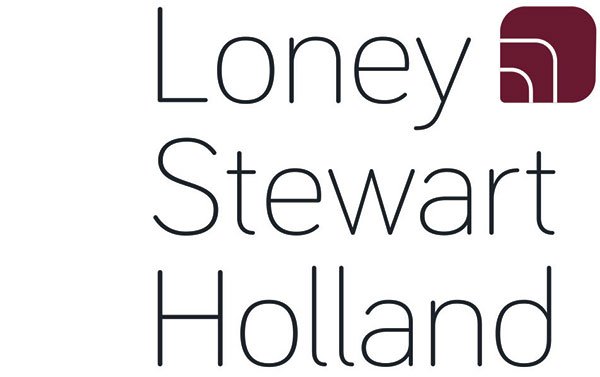Court Confirms Part 36 Offers Reject Earlier Without Prejudice Offers
In the recent case of DB UK Bank Limited (t/a DB Mortgages) -v- Jacobs Solicitors [2016] EWHC 1614 (Ch) the High Court confirmed that making an offer under Part 36 of the Civil Procedure Rules has the effect of rejecting an earlier common law offer, meaning it is no longer capable of acceptance.
Background
Offers made under Part 36 of the Civil Procedure Rules (CPR) are in a prescribed format and remain capable of being accepted all the way to trial, unless and until they are expressly withdrawn following an initial 21-day period. A Part 36 offer can carry punitive costs, interest and damages consequences if a Court concludes that it ought to have been accepted, meaning this sort of offer can significantly shift the goalposts tactically.
Other, non-Part 36, without prejudice (WP) offers are governed by the law of contract, including that such offers are automatically no longer capable of acceptance following rejection or counter-offer. They can also carry costs consequences, but those are generally less predictable and far reaching. That said, there can often be practical reasons to depart from the Part 36 regime, for example if extended time for payment is required or a party cannot allow the offer to remain open ended for commercial reasons.
It has long been the position that, unless it is withdrawn, a Part 36 offer can be accepted notwithstanding any prior rejection or counter-offer (Sampla -v- Rushmoor Borough Council [2008] EWHC 2616 (TCC)). Many considered that the Part 36 and WP regimes therefore operated entirely independently of one another, such that a Part 36 offer in response to a WP offer would not have the effect of rejecting the WP offer. However, until now, there has been no authority directly on the point.
Clarification
DB Mortgages (DB) brought a professional negligence claim against Jacobs Solicitors (Jacobs). During the course of the proceedings Jacobs made a WP offer dated 28 August 2015 to pay a sum for damages plus reasonable legal costs, which they reiterated in March 2016 and again on 12 May 2016. It appears the primary reason this was a WP offer and not a Part 36 offer was that they required longer than the 14-day period for payment provided for under Part 36.
DB didn’t accept the WP offer and instead on 19 May 2016, around a month before the trial was due to start, made a Part 36 offer (presumably seeking a higher sum plus legal costs). Jacobs didn’t accept this and, on 22 June 2016, the week before trial, DB made an about turn and sought after all to accept Jacobs’ WP offer.
Jacobs was no longer prepared to settle on the basis of the WP offer and contended that the acceptance was ineffective, primarily on the basis that DB’s Part 36 offer had the effect of rejecting it. DB contended that the WP offer remained capable of acceptance, principally because the Part 36 regime should have no impact upon common law principles. The Court was asked to determine whether there had been a settlement.
The Court held that the Part 36 offer did indeed reject the WP offer and undermined any ability to later accept it (whilst recognising the established position that had the initial offer been made under Part 36 then later counter-offers would not have had that effect). Unfortunately for DB this meant that the offer it had tried to accept was no longer on the table, there was no settlement and therefore the matter had to proceed to trial.
Commentary and Lessons
Aside from clarifying the legal point (which is currently under appeal), the case serves to highlight the complexity of negotiations, which can require careful judgment and positioning.
A party that receives an attractive offer might seek to “test the water” to see whether better terms might be achieved. When the offer received is under Part 36 this can often be done with impunity given that it is generally very difficult for Part 36 offers to be withdrawn or lapse during their initial 21-day period, and after that they will remain open unless expressly withdrawn, even after a grandstanding rejection.
However, the Court has now confirmed an asymmetry in that, when a proposal is made on common law terms, any sort of counter-offer (Part 36 or WP) will act to reject it and undermine the ability to take the money that was on the table. Parties thinking of making a counter-offer in those circumstances should therefore be aware that doing so carries significant risks. It cannot be assumed that once a proposal is made it will still be there if more can’t be eked out.
The decision is a salutary lesson in respect of risky negotiating strategies. Had DB not taken a last-minute chance by making the Part 36 offer, the case could have settled. Now the parties are left waiting for a new trial window, and DB might be wondering whether it was worth the try after all.
Finally, it appears in this case that Jacobs had good commercial reasons to make a WP rather than Part 36 offer. However, the complex technical arguments (not to mention the loss of the trial window) might have been avoided had it specified a period for acceptance.
Watch this space for the appeal...
This article was prepared by Sarah Holland . If you would like to discuss the content of the article or have any other queries, please contact Sarah.
